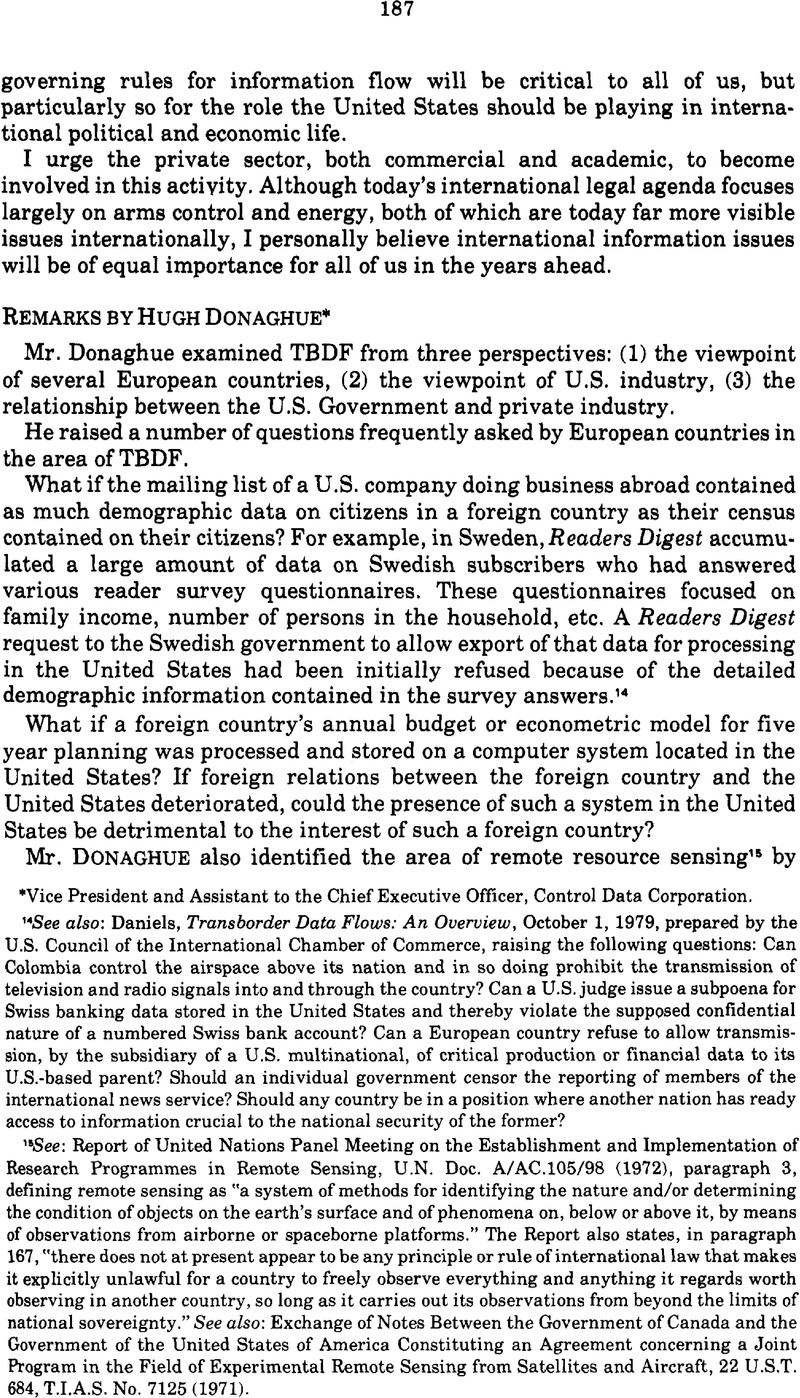No CrossRef data available.
Published online by Cambridge University Press: 28 February 2017

14 See also: Daniels, Transborder Data Flows: An Overview, October 1, 1979, prepared by the U.S. Council of the International Chamber of Commerce, raising the following questions: Can Colombia control the airspace above its nation and in so doing prohibit the transmission of television and radio signals into and through the country? Can a U.S. judge issue a subpoena for Swiss banking data stored in the United States and thereby violate the supposed confidential nature of a numbered Swiss bank account? Can a European country refuse to allow transmission, by the subsidiary of a U.S. multinational, of critical production or financial data to its U.S.-based parent? Should an individual government censor the reporting of members of the international news service? Should any country be in a position where another nation has ready access to information crucial to the national security of the former?
15 See: Report of United Nations Panel Meeting on the Establishment and Implementation of Research Programmes in Remote Sensing, U.N. Doc. A/AC.105/98 (1972), paragraph 3, defining remote sensing as “a system of methods for identifying the nature and/or determining the condition of objects on the earth's surface and of phenomena on, below or above it, by means of observations from airborne or spaceborne platforms.” The Report also states, in paragraph 167, “there does not at present appear to be any principle or rule of international law that makes it explicitly unlawful for a country to freely observe everything and anything it regards worth observing in another country, so long as it carries out its observations from beyond the limits of national sovereignty.” See also: Exchange of Notes Between the Government of Canada and the Government of the United States of America Constituting an Agreement concerning a Joint Program in the Field of Experimental Remote Sensing from Satellites and Aircraft, 22 U.S.T. 684, T.I.A.S. No. 7125 (1971).